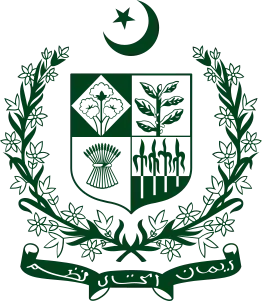A. T. M. Abdul Mateen
A. T. M. Abdul Mateen was Bangladesh politician and former member of parliament.
Early life
He was born on 25 February 1925 at his ancestral home in the village of Aswinpur in Chandpur District (erstwhile Comilla). His father late Mafizuddin Patwary was a famous political leader in the region and the President of Nayagaon Union Parishad for 30 years at a stretch. After completion of his first master's degree in economics from Aligarh Muslim University in India, he married Begum Sharifunnesa, daughter of late Prof. A. U. M. Waliullah on 20 May 1951 and became a father of eight children. After struggling 9 months in New York hospitals, Mateen died of cardiac arrest at Long Island Hospital in New York, on 5 March 2001. Later his body was taken to Dhaka and buried in the family graveyard at Aswinpur village.
Education
- Diploma in Development Economics from London School of Economics, London, United Kingdom, 1953. He was awarded Fulbright Scholarship. Master of Science in International Economics from Cornell University, Ithaca, New York, USA in 1952. He was awarded Fulbright Scholarship during his tenure at Cornell. Master of Arts in Economics from Aligarh Muslim University in India in 1949. He stood first class first and awarded Presidential Gold Medal for outstanding achievements. Bachelor of Law from Aligarh Muslim University in 1949 with distinction.
Political career and experience
Mateen took part in Pakistan movement as member of All India Muslim Students Federation while studying in Aligarh Muslim University (1941–1947). Took part in Muslim League election campaign of 1946 as a student worker under Hussain Shahid Suhrawardi and Abul Hashem along with Sheikh Mujibur Rahman. Elected member of the Pakistan National Assembly (1965–1969). He defeated former president of Bangladesh Khondaker Mostaq Ahmad in 1965 election from the constituency of Matlab, Daudkandi, Kachua, and Homna thana. He was elected Deputy Speaker of the National Assembly of Pakistan (1965–1969). He took oath as an acting President of Pakistan for a short time.
In 1969, he organized Muslim League rebel group with 27 members of the Pakistan National Assembly to force President Ayub Khan to withdraw the controversial Agartala conspiracy case and release Sheikh Mujibur Rahman and other accused. As a special envoy of President Ayub Khan, he visited many countries of Africa and Middle East, met kings and presidents. On 15 August 1971, he was arrested by Pakistan army for organizing a meeting with late Nurul Amin (former prime minister). The purpose of this meeting was to force Governor Yahya Khan to release Sheikh Mujibur Rahman from Rawalpindi jail and handover the power to him as the leader of the majority party to form the government. He was the founding editor of Daily Millat, a daily English newspaper, during 1977–1984. He was the chairman of Movement for Democratic Bangladesh, June 1988 - March 2001. He was the chairman of Bangladesh Muslim Front, 1993–1996.
Social services
He was the founder and honorary director of the Islamic Academy, now known as the Islamic Foundation Bangladesh, from 1959 to 1962.

